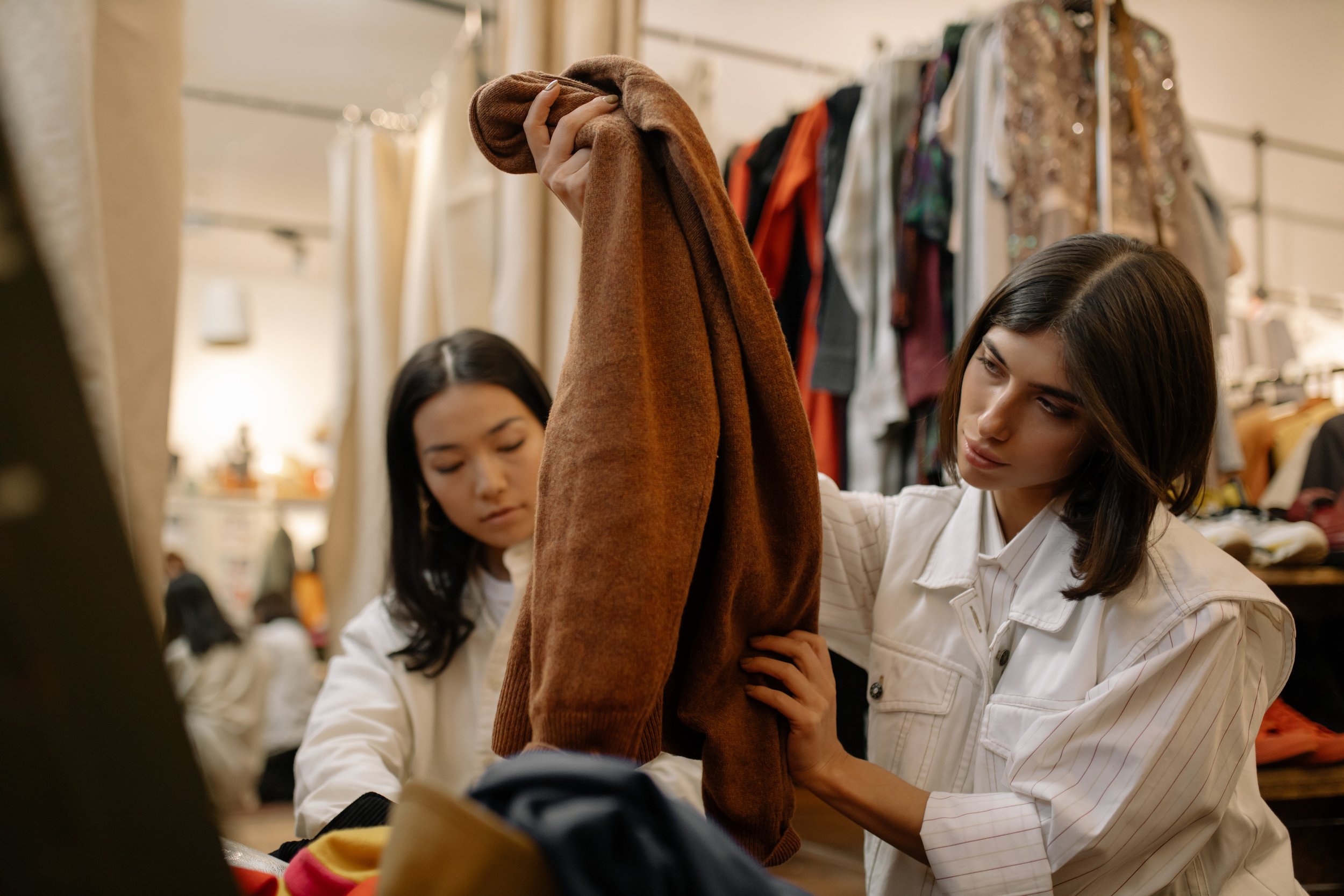
The Rise and Fall of Missguided.
06.01.2022
By Emma Golley
Missguided, once a force to be reckoned with in the world of ultra fast fashion, is facing an uncertain future that is hanging on by a thread. Last week it was issued with a winding up petition by some of its suppliers who are due payments worth millions. Two days ago, the brand called in the administrators after failing to secure a rescue deal. It was just announced the Sports Direct Frasers group just bought Missguided out of administration for just £20m.
What appeared to be an untouchable womenswear power player, catering to young trendy enthusiasts from teens to young professionals in their early 30s, has now seemingly struggled to maintain its dominant position in the fast fashion market. The infamous brand has gone from sponsoring major reality TV show ‘Love Island’, to having its very own ‘fly on the wall’ docuseries, giving us a behind the scenes glimpse into the workings of the label and the employees responsible for delivering the collections. So where did it all go wrong?
Launching in the UK in 2009 at the height of the recession, Missguided was founded by CEO Nitin Passi who started the brand with a £50,000 loan from his father in 2008. Within 5 years the brand rapidly grew into an 80 million dollar company, despite Nitin not having a huge amount of previous business experience. By 2015, it had expanded into the US and Europe.
‘They became a pioneer of what we know today as ultra fast fashion’
Like any start-up, the brand was solely run by Nitin until he was in a position to start hiring staff and he initially relied on wholesalers to buy products from instead of hiring a design team. Now 90% of the collections are designed by their in-house team. Missguided went from strength to strength, bringing a whole new meaning to the term ‘fast fashion’. They became a pioneer of what we know today as ‘ultra fast fashion’, churning out new collections on a daily basis - something even brands like Zara couldn’t compete with. The price points were hard to rival too. Offering dresses for as little as £5 and bikinis as little as £1, the temptation was too irresistible for teens and young women dealing with the aftermath of a recession, wanting to look and feel great for a fraction of the cost.
Much of the production was based in the UK, making it easier for the brand to react fast to trends, they also had suppliers in the Far East. If a hot celeb was seen wearing a dress, you could bet your life Missguided would be creating their version of it and releasing it for sale within 3 weeks.
Suppliers are owed millions from the retailer.
Their tactics to partner with big name stars such as Nicole Scherzinger and Pamela Anderson paid off and the brand continued to produce results. By 2018, 10 years after Nitin first took the loan from his father, Missguided became the official sponsor of the popular reality series ‘Love Island’. Sales skyrocketed even further, with the brand claiming they saw a 40% increase in sales (possibly made easier by the fact they took a £26 million loss at the start of the year).
In 2020 they went one step further and appeared in their own docuseries on Channel 4, opening their doors for everyone to see the goings on of the infamous brand. Reviews of the show were mixed, with some viewers horrified to see the penny-pinching conversations with suppliers and graphic language. Others hailed it for its representation of female empowerment and talk of working class people getting opportunities in fashion outside of London.
‘Ultra fast fashion brands have come under fire over recent years for their poor treatment of workers and low wages.”
So what changed? In recent days, news reporters and experts have offered their thoughts- many of the mindset that Missguided not only burnt bridges with their suppliers, they also didn’t evolve or adapt to their customer base.
Ultra fast fashion brands have come under fire over recent years for their poor treatment of workers and low wages. In 2020 BooHoo made the headlines when it was reported their suppliers paid their employees as little as £3.50 per hour. Missguided also faced a similar backlash back in 2017 for underpaying their workers in factories in Leicester.
The pandemic revealed just how many brands prioritized their profits over their suppliers, with reports of internationally known brands including the likes of Primark and URBN not paying for canceled orders due to slumping sales during 2020. This spurred campaigns from nonprofit organizations such as ReMake’s ‘Pay Up’ movement, targeting companies that refused to pay their workers for orders. Fast forward to 2022 it appears enough is enough for Missguided’s factories with suppliers knocking on their door for payments worth millions that have not been fulfilled.
‘Even Love Island, the reality show once sponsored by Missguided, has now turned the tables and partnered with eBay to dress contestants in secondhand outfits.’
Naturally, you would think a cheap fast fashion company might benefit from the pandemic, with customers feeling the pinch, keen to update their wardrobe on a budget. But in many ways it has had the opposite effect. The lockdown gave consumers more time to reflect on their shopping habits and while many still felt their wallets tighten, it has opened the doors for the pre-loved market. There has been a 404 percent year-on-year increase in pre-loved sales since 2018, with British consumers leading the way. The UK saw 117% more second-hand sales than in the US in 2020.
Even Love Island, the reality show once sponsored by Missguided, has now turned the tables and partnered with eBay to dress contestants in secondhand outfits. With the public's attitudes to fashion changing, maybe it’s time for fast fashion brands to stop underestimating their customers and change their attitudes too. Otherwise they could find themselves in the same position as Missguided sooner than they think...
Like this article? Sign up to our new newsletter to get more articles like this delivered straight to your inbox once a month.
Related Articles.
The Power Of The Consumer.
How we as consumers can make small changes with powerful & influential consequences.
Sustainability | By Dr. Alana M James | 10.15.20
The Human Cost of £3 Dresses.
With well known retailers such as Boohoo making the headlines recently for their unethical treatment of garment workers, we ask -what is the human cost of rock-bottom prices?
Articles | By Isabel Hambley | 07.15.20
The Duo Taking The Hassle Out of Sustainable Shopping.
An interview with Business Owner and Co-founder Anna Frendo of Frendo & Shack.
Sustainability | Emma Golley | 02/01/2022






